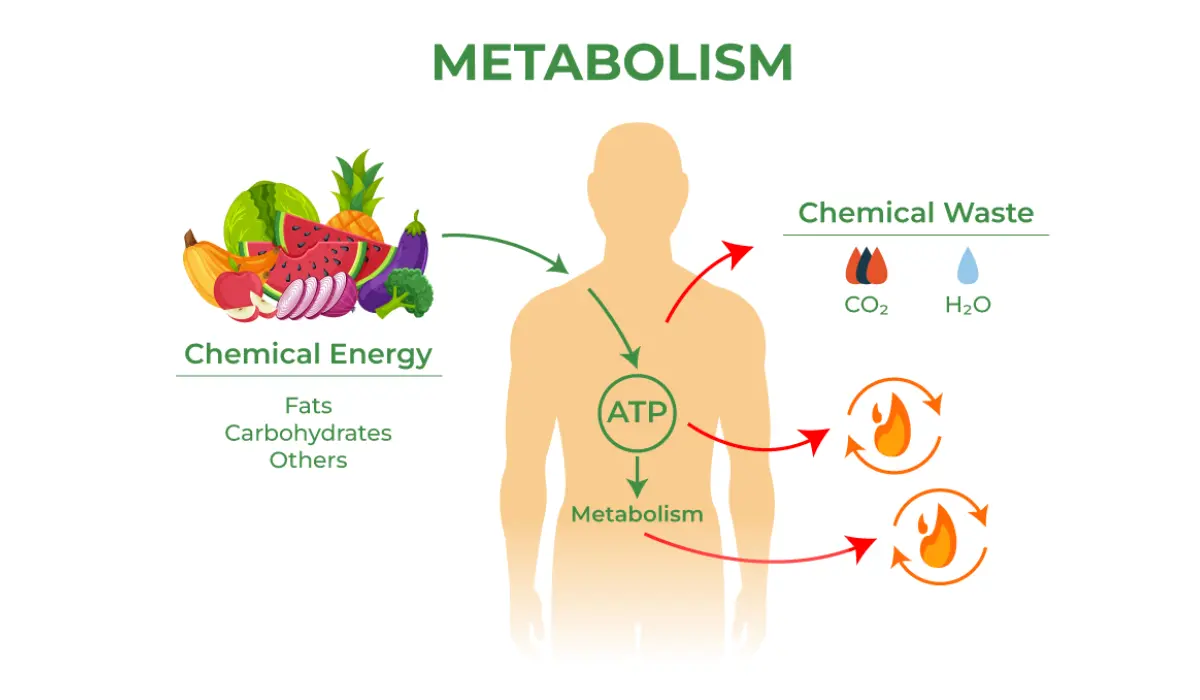Types Of Metabolism: Our metabolism provides the energy we use to perform different tasks. What can people do in the absence of energy? Nothing! Indeed, for life to continue, the metabolic process is required.
You may believe that your body’s metabolic processes stop after you eat, but many metabolic processes remain. Understanding metabolism, its various forms, and how to identify your type of metabolism will be beneficial.
What Is Metabolism? What Makes Your Metabolism Unique?
The chemical process in the body’s cells called metabolism turns food into energy. To optimize the energy that food stores provide our body, it must undergo a series of metabolic processes after consumption.
The body contains specific proteins that regulate chemical reactions during metabolism. Our body regulates thousands of simultaneous metabolic processes to keep our cells healthy.
How Does the Metabolic Process Take Place?
Understanding the various ways that metabolism occurs is essential.
Following a meal, the digestive system uses enzymes to break down protein into amino acids, convert fats into fatty acids, and break down carbohydrates into simple sugars like glucose. Also, each of these substances enters the bloodstream and travels to the cells where the body uses them as energy sources.
Other enzymes then work to quicken the chemical processes involved in metabolizing these substances once they have entered the cells. During these processes, the body can release the energy that these compounds contain and store it in tissues like muscle, fat, and the liver.
We can determine that metabolism is an equilibrium process including two kinds of processes taking place, such as anabolism and catabolism.

What Manages the Metabolism?
The endocrine system’s many hormones help regulate the pace and direction of metabolism. Among them are:
Which Types Of Metabolism Are There?
Individual differences in metabolic type result in varying experiences. There are three types, which explain how individuals transform, use, and store their energy from food.
This refers to a body type that is characterized by a higher percentage of body fat and a larger bone structure. The most typical body type is this one. Approximately 70% of people on the planet have endomorphic traits.
This usually clarifies individuals with endomorph metabolism.
Many people categorize this body type as having an athletic physique. This clarifies people whose metabolisms are mesomorphic:
This is considered to be slender and thin. Ectomorphs have the smallest body frames of the three types of metabolism. Their body type is better explained by the following:
Types Of Metabolism: Conclusion
You can tell what kind of metabolic body you have by looking at the types mentioned above. These styles also depicted a reflective amalgamation of diverse body shapes. It takes metabolism to support life and promote growth. The process of metabolism produces energy that we use to do tasks besides, eating.

